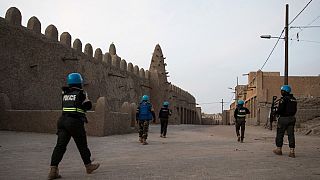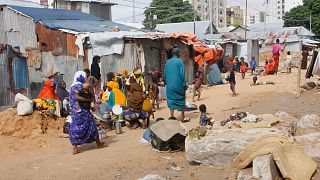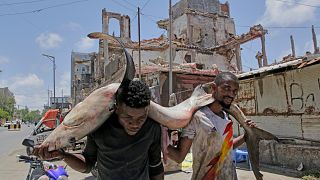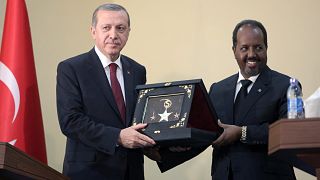Somalia
United Nations Secretary-General, Antonio Guterres, appealed for “massive international support” for Somalia during his visit to the country which came as it faces its worst drought in decades.
He said the nation was dealing with humanitarian difficulties while at the same time also combating a serious terrorism threat.
"The international community has the responsibility and the interest to support Somalia with the resources needed to defeat Al-Shabaab, to build resilience, stabilise the areas liberated, and to provide much needed humanitarian assistance,” he said.
Last year, Somali President Hassan Sheikh Mohamud launched a major offensive against the Islamist militants, backed by allied local clan militias.
The government claims to have killed 3,000 Al-Shabaab fighters since the campaign was launched, but the militant group has repeatedly shown its ability to strike back.
In Mogadishu, Guterres also met with representatives of Somali civil society organisations working in women’s affairs and empowerment, climate change, persons with disabilities, youth, and marginalised groups and said he was “deeply inspired by their vision and energy.”
“A safe and inclusive civic space is essential to good governance and can help prevent and reduce violence. The full participation of Somalia’s women and young people in political life, including the constitutional review is critical,” he said.
He added that he welcomed the government's commitment to women’s rights and representation, and called “for the full implementation and codification of the 30 per cent quota for women in elections”.
While in the country, Guterres also visited a camp for internally displaced people in the south-western city of Baidoa where he lauded the determination of residents to rebuild their lives, saying the international community should do more to support them.
"It is unconscionable that Somalis, who have done almost nothing to create the climate crisis, are suffering its terrible impact, just as they are beginning to emerge from years of conflict and insecurity,” he said.
Following five consecutive failed rainy seasons, 1.4 million people have been displaced by the drought, with women and children making up 80 per cent of them.











Go to video
ICC warns of a dire humanitarian crisis in Sudan as the war rages on
01:24
South Sudan: World Food Programme airdrops food, warns of famine
01:00
Hamas gives 'positive' response to 60-day ceasefire proposal but says talks needed on implementation
01:22
World will have to learn to live with heatwaves, UN says
01:39
Sustainable development financing conference opens in Seville
01:39
Driven to starvation, Sudanese eat weeds and plants to survive